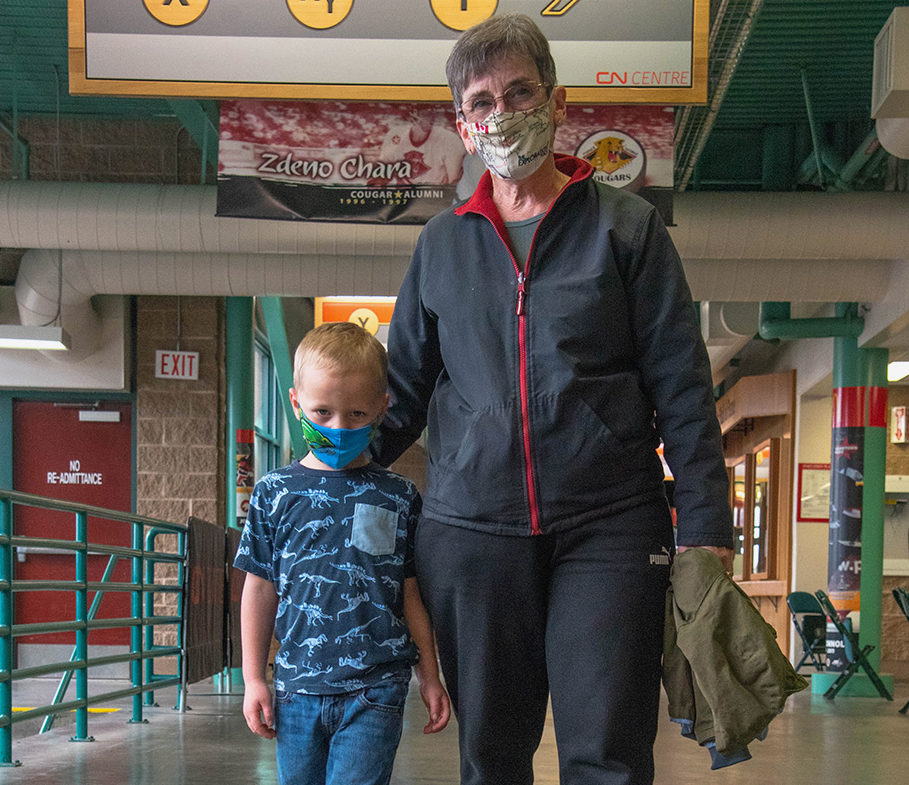Mike Farnworth, Minister of Public Safety and Solicitor General, is aligning the Province’s measures under the Emergency Program Act (EPA) with the provincial health officer’s (PHO) guidance that masks must be worn in indoor public places.
The Province is also formally extending the provincial state of emergency, allowing health and emergency management officials to continue to use extraordinary powers under the EPA to support the Province’s COVID-19 pandemic response. The state of emergency is extended through the end of the day on Dec. 8.
“We’ve entered a second wave of COVID-19 in British Columbia and additional steps need to be taken to protect our health,” Farnworth said.
“Now more than ever, we all need to follow the guidelines of the PHO. Last week, the PHO provided guidance that masks should be worn in all indoor public places. This new order under the EPA will ensure we have the tools necessary to enforce the mask mandate as recommended by the PHO.”
This ministerial order on masks ensures a coordinated response to COVID-19.
Masks are now required to be worn by all British Columbians, 12 years and older, in many indoor public settings.
These include:
* malls, shopping centres, coffee shops, and retail and grocery stores;
* liquor and drug stores;
* airports, city halls, libraries, community and recreation centres;
* restaurants, pubs and bars;
* places of public worship;
* on public transportation, in a taxi or ride-sharing vehicle;
* common areas of office buildings, court houses, hospitals and hotels;
* common areas of sport and fitness centres when not engaged in physical activity; and
* common areas of post-secondary institutions and non-profit organizations.
Working with public health officials, Emergency Management BC anticipates issuing further orders to enforce requirements for masks in common areas of apartment buildings, condos and workplaces.
This first order covers the high-traffic public settings where people who do not know each other often interact.
For the purposes of this order, a mask or face covering is defined as a medical or non-medical mask that covers the nose and mouth.
Face shields are not a substitute for a mask, as there is an opening below the mouth.
People who cannot wear a mask or who cannot put on or remove a mask without the assistance of others are exempt.
A person may not be able to wear a mask for a psychological, behavioural or health condition, or due to a physical, cognitive or mental impairment.
Masks may be removed temporarily in indoor public places to identify the individual wearing the mask, to consume food or beverage at a location designated for this purpose, while participating in a sport or fitness activity in a sport facility or while receiving a personal or health service that requires the mask to be removed.
“Education is key, which is why we’re having businesses review their plans and getting the word out to communities in several languages,” Farnworth said.
“Businesses should provide signage on the mandatory mask policy and inform customers about the requirement. Of course, despite any range of efforts, some people will break the rules knowing full well what they’re doing. These measures give police and other enforcement officials the tools to intervene with and penalize problematic individuals and groups.”
Anyone without a mask in an indoor public place or who refuses to comply with the direction of an enforcement officer, including the direction to leave the space, or who responds with abusive or belligerent behaviour, may be subject to a $230 fine.
Effective immediately, these measures are enacted under the provincial state of emergency, using the extraordinary powers of the EPA in ongoing support of B.C.’s COVID-19 response.
To report non-emergency contraventions of this mask order, people are asked to contact their local government’s bylaw office. Local bylaw officers can help follow-up on concerns and engage police departments and WorkSafe BC as necessary.
If they are unable to reach a local bylaw office, they can contact their local police department’s non-emergency line.
Police may be called if someone has become threatening or abusive in response to a request to put on a mask.



